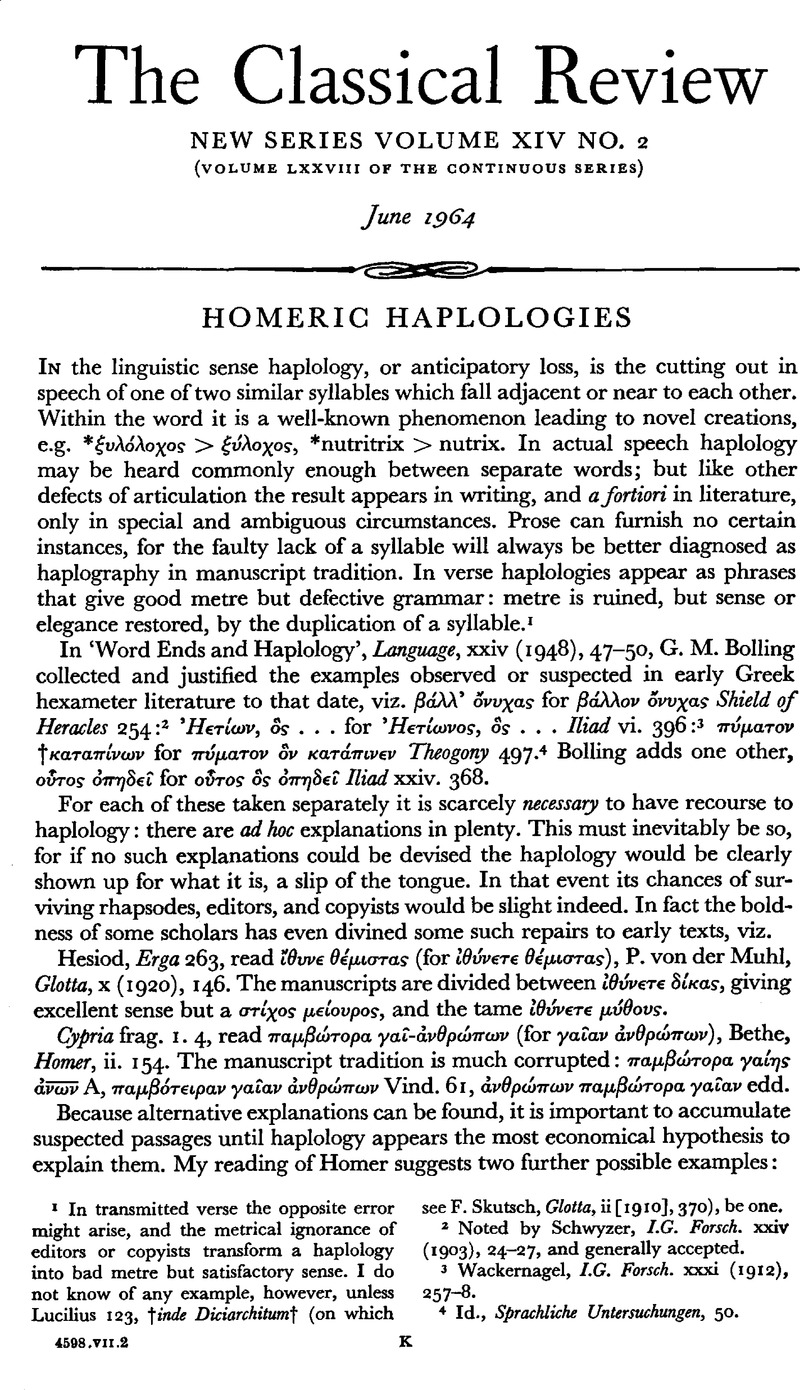No CrossRef data available.
Article contents
Homeric Haplologies
Published online by Cambridge University Press: 27 February 2009
Abstract

Information
- Type
- Review Article
- Information
- Copyright
- Copyright © The Classical Association 1964
References
page 127 note 1 In transmitted verse the opposite error might arise, and the metrical ignorance of editors or copyists transform a haplology into bad metre but satisfactory sense. I do not know of any example, however, unless Lucilius 123, †inde Diciarchitum† (on which see Skutsch, F., Glotta, ii [1910], 370), be one.Google Scholar
page 127 note 2 Noted by Schwyzer, , I.G. Forsch. xxiv (1903), 24–27, and generally accepted.Google Scholar
page 127 note 3 Wackernagel, , I.G. Forsch. xxxi (1912), 257–258.Google Scholar
page 127 note 4 Id., Sprachliche Untersuchungen, 50.
page 128 note 1 Chantraine, , Grammaire Homérique, ii. 167.Google Scholar
page 128 note 2 Cf. Hesychius π⋯ρσαντες (Od. v. 107). ⋯λ⋯σαντες, πορθ⋯σαντες. ⋯νελ⋯ντες Il. i. 125 is the only Homeric passage where ⋯κπ⋯ρθειν has the goods and not the town for object.
page 128 note 3 In post-epic literature Schwyzer, , Griechische Grammatik, p. 264Google Scholar, notes only Euripides, Orestes 502, and Apollonius iv. 945, as possible examples. Boiling, op. cit., supposes that the Apollonian instance is imitative of Homer.
page 128 note 4 Bowra, C. M., Heroic Poetry (1952), 240–241.Google Scholar
page 128 note 5 Lord, A. B., T.A.P.A. lxxxiv (1953), 124–134.Google Scholar
page 128 note 6 Kirk, G. S., C.Q. lxiii (1960), 271–281CrossRefGoogle Scholar. Kirk's paper is a valuable and timely reappraisal of the analogical arguments drawn from the South Slavic oral epic tradition; cf. now his Songs of Homer, pp. 91–95.

